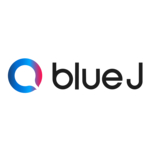TD Bank hit with $3bn in fines over AML failures
Toronto-Dominion Bank (TD Bank), the sixth-largest bank in North America, is set to pay around $3.09 billion in fines following the resolution of investigations related to its US Bank Secrecy Act (BSA) and anti-money laundering (AML) compliance programmes.

TD Bank has received the “largest penalty ever imposed under the BSA”
The news comes after the bank had announced in August that it was continuing to “actively pursue a global resolution of the civil and criminal investigations into its US Bank Secrecy Act (BSA) / anti-money laundering (AML) programme by its US prudential regulators, the Financial Crimes Enforcement Network (FinCEN) and the US Department of Justice (DOJ)”.
In a statement released on October 10, TD Bank says it has now “consented to orders with the Office of the Comptroller of the Currency (OCC), the Federal Reserve Board, and the Financial Crimes Enforcement Network (FinCEN) and entered into plea agreements with the Department of Justice, Criminal Division, Money Laundering and Asset Recovery Section and the United States Attorney’s Office for the District of New Jersey”.
Announcing the resolution, US Attorney General Merrick Garland says the bank “pled guilty to multiple felonies, including conspiring to violate the Bank Secrecy Act and commit money laundering”.
TD Bank will pay fines totalling approximately $3.09 billion, including a record $1.8 billion penalty from the US Justice Department, described by Deputy Attorney General Lisa Monaco as the “largest penalty ever imposed under the BSA”.
Under the resolution, the combined assets of TD Bank’s two US banking subsidiaries – TD Bank, NA and TD Bank USA, NA – have also been capped at $434 billion.
DOJ statement
In a statement, the US DOJ says: “According to court documents, between January 2014 and October 2023, TD Bank had long-term, pervasive, and systemic deficiencies in its US AML policies, procedures, and controls but failed to take appropriate remedial action.”
It claims that the bank “intentionally did not automatically monitor all domestic automated clearinghouse (ACH) transactions, most check activity, and numerous other transaction types, resulting in 92% of total transaction volume going unmonitored from Jan 1, 2018, to April 12, 2024”.
The DOJ says: “For years, TD Bank failed to appropriately fund and staff its AML programme, opting to postpone and cancel necessary AML projects prioritising a ‘flat cost paradigm’ and the ‘customer experience’.”
Furthermore, the DOJ claims that the bank’s AML failures “enabled three money laundering networks to collectively transfer more than $670 million through TD Bank accounts between 2019 and 2023”.
In total, the Justice Department says it has charged over “two dozen individuals” in these schemes, including “two bank insiders”.
In remarks on the resolution, Garland says: “TD Bank created an environment that allowed financial crime to flourish. By making its services convenient for criminals, it became one.”
He notes that TD Bank is now the “largest bank in US history to plead guilty to Bank Secrecy Act programme failures, and the first US bank in history to plead guilty to conspiracy to commit money laundering”.
Garland adds: “As part of the plea agreement, TD Bank will fundamentally restructure its corporate compliance programme at its US-based bank, which is the 10th largest in the United States.
“The bank has also agreed to the imposition of a three-year monitorship and a five-year term of probation. While the bank has started its remediation, it will continue to remediate and improve its anti-money laundering compliance programme to ensure that the bank operates lawfully and safely moving forward.”
TD Bank’s statement
In its statement on the resolution, TD Bank says: “Plans are in place to address the requirements and limitations contained in the consent orders, including adjustments to the bank’s US balance sheet. These actions will provide the asset capacity required to serve and support US customers’ financial needs without interruption, now and into the future.
“TD has the financial strength, stability, and operational flexibility to deliver the required US AML remediation programme, continue to serve the financial needs of its more than ten million US customers, and invest to strengthen the business.”
Bharat Masrani, who recently announced his upcoming retirement as TD Bank Group president and CEO next year, states: “We have taken full responsibility for the failures of our US AML programme and are making the investments, changes and enhancements required to deliver on our commitments. This is a difficult chapter in our bank’s history. These failures took place on my watch as CEO and I apologise to all our stakeholders.”
Moving forward, the bank says it will be “subject to more stringent approval processes for new bank products, services, markets, and stores to ensure the AML risk of new initiatives is appropriately considered and mitigated”.
In addition, TD Bank is pushing forward with a “multi-year effort” to implement new processes and training aimed at enhancing its ability to “prevent, detect, and measure financial crime risk”. This includes improving escalation procedures and decision-making, deploying data-driven risk mitigation technologies, and overhauling its AML leadership team.
The bank has appointed a new US head of financial crime risk management and BSA/AML officer and added over 700 new “AML specialists”.











































